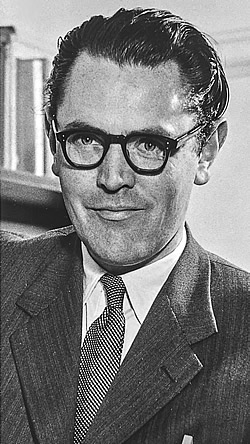Tom Winpenny

The music of Peter Racine Fricker has experienced a ‘cruel reversal of fortune’. His large corpus of work spans all the main genres with the exception of staged opera, and his works are deftly constructed models of musical form. Fêted in Britain in the 1950s and early 1960s, he composed in a well-wrought, largely contrapuntal style, which often employed a modified serial technique. Fricker’s precision as a composer reflects his fastidious character. The elegant penmanship of his manuscripts highlights his textural clarity: though seemingly spare, in performance the writing conveys considerable musical integrity. But his music was soon eclipsed by the provocative experiments of a younger generation of composers, and his disenchantment prompted him to accept a teaching post in Santa Barbara, California. He was held in high regard by colleagues and students, and his congenial life in the USA inspired a rich array of compositions, which, regrettably, have been largely neglected since his death in 1990.
Fricker, a descendant of the French playwright Jean Racine, was born in London on 5 September 1920. From 1933 to 1937 he attended St Paul’s School, Barnes, where fellow pupil, the future horn virtuoso Dennis Brain, became a life-long friend. Poor eyesight had put paid to Fricker’s predetermined career in the merchant navy, but his musical abilities flourished under his organ teachers, Henry Wilson and Ralph Downes. Continuing to the Royal College of Music in 1937, Fricker studied piano under Wilson, theory and composition under R. O. Morris, and organ under Ernest Bullock (then organist of Westminster Abbey).
To see the whole article, please subscribe to The Organ.
